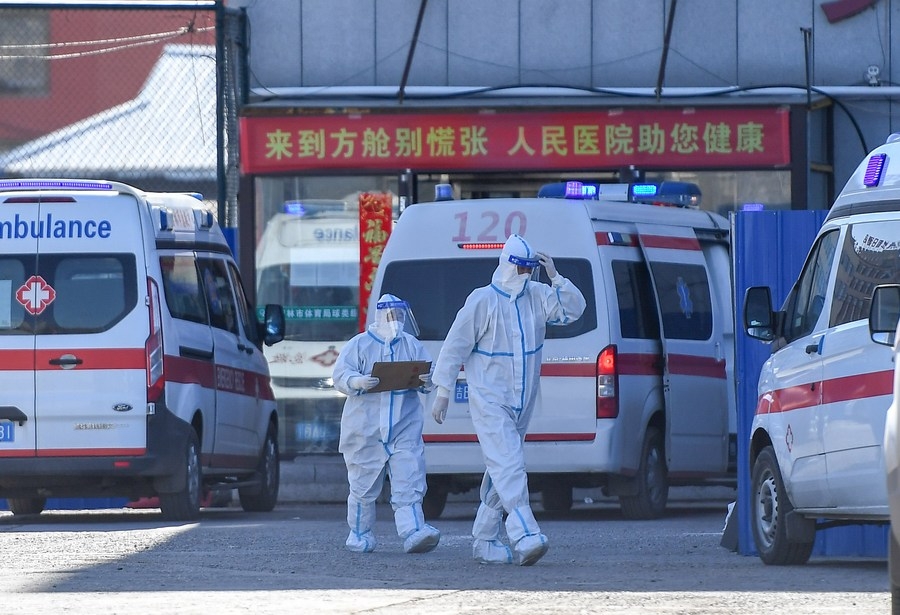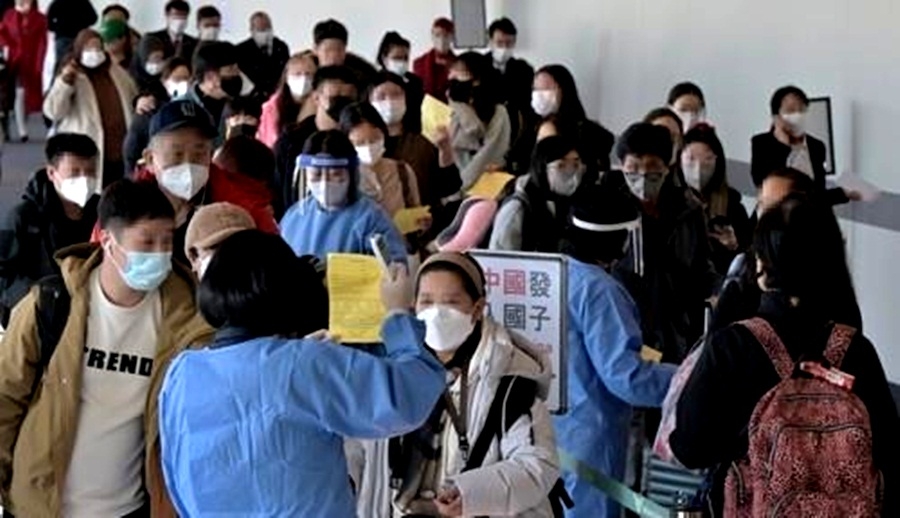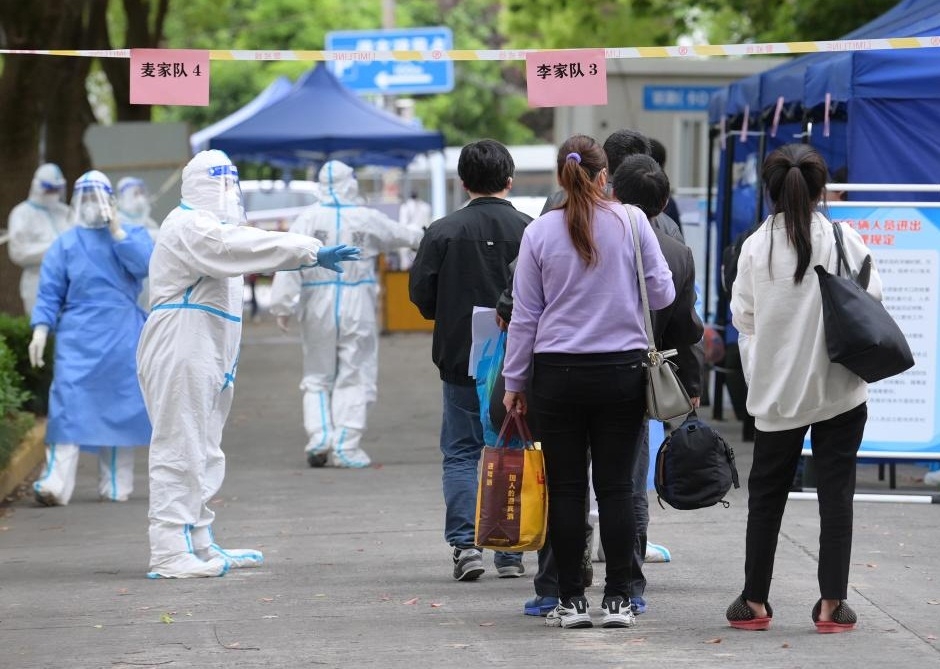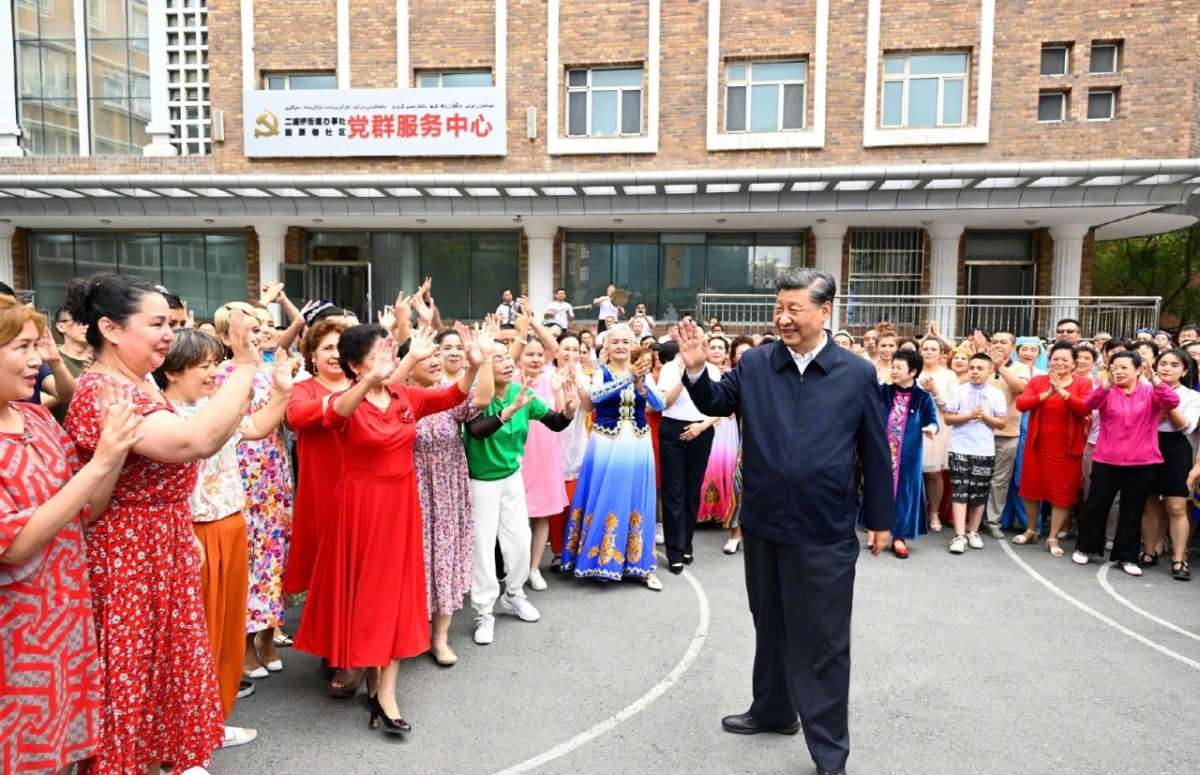Xi Jinping has no interest in assuring the rest of the world, but only in signalling resolve and doubling down on threats. Instead of taking off-ramps, China prefers to act like the victim, and perpetuates lies that nobody believes…reports Asian Lite News
China is recovering from the COVID-19 outbreak that swept through the population, enjoying a lull before another peak is expected later in the year.
Even while the average Chinese is consumed primarily with keeping their job and weathering an economic storm, the authorities in Beijing persist in doubling down on troublesome foreign policies that cost it credibility in the world’s eyes. The high-altitude balloon saga is emblematic of China’s tendency to come out swinging whenever it is embarrassed or cornered.
It was the same during the uncontrolled spiralling of deaths from COVID, and now there is a danger that China will back Russia’s war in Ukraine more strongly than before.
As Professor Anne-Marie Brady, an expert on Chinese policy at Canterbury University in New Zealand, explained, “A common pattern in the Xi era is, when the regime is caught out, such as foreign interference, the Solomon’s security treaty or spy balloon incursions, they entrench activities, try plausible deniability and won’t back down. From smiley face diplomacy to wolf warrior in a second.”
Returning to COVID-19, it is impossible to know how many Chinese died in the virus surge after Chairman Xi Jinping abandoned his much-vaunted zero-COVID policy without warning.
“A common pattern in the Xi era is, when the regime is caught out, such as foreign interference, the Solomon’s security treaty or spy balloon incursions, they entrench activities, try plausible deniability and won’t back down. From smiley face diplomacy to wolf warrior in a second.” – Prof. Anne-Marie Brady
An official count, covering December 8, 2022, till January 12, 2023, listed 5,503 deaths due to respiratory failure from COVID, and another 54,435 with underlying conditions.
Jiao Yahui, Director of the National Health Commission’s medical affairs department, said the average age of fatalities was 80.3 years, and 90 per cent were aged 65 or over.
However, the enormous problem is that Chinese data cannot be trusted. By 21 January, probably 80 per cent of the population had caught COVID, and many analysts estimate 1-1.5 million died.
China should have a higher mortality rate than most Western countries because it has minimal herd immunity and its home-grown vaccinations are not as effective.

If Hong Kong, whose health system is more advanced than China’s, suffered 2,000 deaths for every million citizens, China’s population of 1.412 billion could have experienced a death toll nearer three million.
Certainly, a large death toll has impacted China’s population, which already faces a gender imbalance and a rapidly ageing population. The population started shrinking last year, 850,000 down in 2022. This was the first drop since 1961, the final year of the Great Famine that Mao Zedong caused.
People were shocked by the dramatic about-face of the Chinese government. Thus, when the Chinese Communist Party (CCP) claimed a triumph over COVID-19, it was seen by many as crass and callous.
The CCP claimed on 16 February that the country had “achieved a major and decisive victory in its COVID-19 prevention and control since November 2022”.
A readout from a State Council meeting claimed, “Always putting the people and their lives first, the CCP Central Committee with Xi at its core has optimized prevention and control measures in light of evolving situations, efficiently coordinated COVID-19 response with economic and social development, and effectively protected the people’s lives and health.”
It added that “China’s COVID-19 response has made a smooth transition in a relatively short time,” and that the national fatality rate was the world’s lowest. Effusive in self-praise, the meeting concluded, “China has created a miracle in human history, in which a highly populous nation has successfully pulled through a pandemic.”
Social media responses to the government’s proclamation of victory were muted. One source told ANI that this was evidence that few in China believe the party. With such self-righteous declarations, the CCP therefore only underscores its flagrant disregard for human life, and confirms it cannot be trusted.
Xi has had very little to say on COVID, as he distanced himself from his failed policy.
Ironically, China spent billions of yuan preventing COVID deaths from 2020 to late 2022 (for example, it spent more than USD29 billion on PCR testing alone over three years), but all this work was undone in just a few weeks. The result was the same as everywhere else in the world, but much greater harm was done to society in the interim.

The same source told ANI that people are more focused on surviving an economic crisis that COVID has exacerbated. Unemployment is rising, and many foreign companies have moved production away from China to places like India and Vietnam.
There is also a housing crisis, as large corporations like Evergrande owe billions of dollars. Citizens are wondering how they will pay their mortgages and keep their jobs.
Chinese people, if nothing else, are extremely pragmatic, and most have little time for the empty epithets and victory slogans of the CCP.
The events of recent months have shown that the CCP looks after its own, but that the average person must fend for himself. It is therefore likely that resentment against Xi and the CCP is at an all-time high.
The party staked its reputation on controlling COVID-19, but ultimately it was as powerless as the rest of the world to resist the viral tide.
China’s singular response has been to avoid explanations, to doctor official data, launch a campaign “preventing the exaggeration of gloomy emotions” and heap praise on itself.
This cannot be a successful long-term strategy, but perhaps Xi is simply trying to weather the storm. The question then is, how long is the people’s memory? Will they forgive and forget?
Xi has proved he is willing to sacrifice the well-being of the people he purports to serve, in order to exert greater control, as surveillance of the population went almost unchecked and some 530 million were subjected to lockdowns. Trust between the people and the state has been damaged, but it remains to be seen whether irrevocably so.
Xi may have fallen into a trap of his own making because he thought he had the power to justify any measure he wanted over the population.
However, Xi found there is a limit, and the spontaneous protests of last November served as a pressure release valve of societal discontent.
Thanks to inadequate planning, poor vaccination levels and sudden policy reversals, the CCP demonstrated a profound failure and washed its hands of responsibility. As the brutal Joseph Stalin famously said, “The death of one man is a tragedy. The death of a million is a statistic.”
Moving on, the shoot-down of a Chinese high-altitude balloon after it floated over the USA is another example of brazenness, when embarrassment would be more appropriate.
This balloon was never a meteorological device, yet Beijing refuses to admit it has been spying upon and violating the sovereign airspace of multiple nations for years.
As Rear Admiral Mike Studeman, the commander of the US Office of Naval Intelligence, pointed out, “It’s disturbing how ill-informed and naive the average American is on China. I chalk this up, if I could summarize, into a China blindness. We face a knowledge crisis and a China blindness problem.”

Studeman added, “We should be connecting the Chinese view of how to use their capabilities to all the other areas where the Chinese have either ignored, or they intend to subvert, forms of international law. I guarantee you if they’d been successful with operating all over the place, and they had been for quite some time, that they’d be talking about redefining what sovereign airspace really is.”
The intelligence chief said he had been fighting the US intelligence community for some time so that more damning information about Chinese activities can be put into the public domain.
After a meeting between Secretary of State Antony Blinken and former Foreign Minister Wang Yi on 18 February, China’s Ministry of Foreign Affairs came out with all guns blazing, “If the United States insists on taking advantage of the situation, hyping the escalation and expanding the situation, the Chinese side will accompany it to the end, and all the consequences will be borne by the United States.”
Instead of admitting responsibility, China took umbrage at the USA protecting its airspace, “What the United States needs to do is to show sincerity, face up to and solve the damage caused by the abuse of force to Sino-US relations.”
Hang on, that is what China should be doing! It has shown no sincerity, evaded blame and worsened the damage.
China’s Foreign Ministry also discussed its unstinting support for Russia’s bloody war in Ukraine, “The China-Russia comprehensive strategic partnership is built on basis of non-alignment, non-confrontation, non-targeting of third parties. It’s within the sovereignty of two independent countries. We never accept the US dictating or even coercing the Sino-Russian relationship.”
Yet Blinken warned of “very real concerns” that China is contemplating lending material support to Russia’s war effort.
“We’ve seen already over these past months the provision of nonlethal assistance that does go directly to aiding and abetting Russia’s war effort. And some further information that we are sharing today, and that I think will be out there soon, that indicates that they are strongly considering providing lethal assistance to Russia.”
Blinken was referring to the supply of weapons and ammunition, perhaps including drones. China says its relationship with Russia has no limits, but it would be a seminal moment if China proceeds to give Russia lethal aid.
Moscow, with its failure to secure a rapid victory in Ukraine, and coalescing united support for Ukraine from the West, has permanently changed the Sino-Russian relationship.
Russia is now more dependent on China for capital investment and technology, which gives Beijing more leverage. Furthermore, Russia’s military has been exposed as a paper tiger, lessening its value as an ally.
Discussing American concerns about tacit Chinese military support for Russia, Professor Philipps P O’Brien, Head of the School of International Relations at the University of St Andrews in the UK, noted that “the USA must be very concerned that China is actually going to supply significant military support to Russia. So far, most have said that China was more helping around the edges.”
O’Brien added that “this indicates that China must believe that the Russian Army is in terrible shape and desperately needs aid. The Chinese are assumed to be studying how effective sanctions can be if the US order sticks together.”
Next, “A major (and regular) supply of Chinese military products would be a real benefit to Russia. Russian domestic production seems to be woefully inadequate to make up for Russian losses. China can produce far more. I would go so far as to say that the only way Russia can wage a long war is with significant Chinese support in both finished munitions, spare parts and specialized components such as microchips.”
However, such Chinese actions would cause an undesirable reaction, since it “will lead almost definitely to an escalation in the aid given to Ukraine (and one wonders if the Chinese decision-makers are wondering whether this is worth this risk). If China basically throws in militarily with Russia, Western aid to Ukraine is increased,” O’Brien predicted.
“The USA has to believe that the Chinese government is torn about how much military aid to give Russia and, by going public, they are trying to put maximum pressure on Beijing not to do this.” O’Brien said it “would be one of the most fateful choices of the war” if China did so.
Xi has no interest in assuring the rest of the world, but only in signalling resolve and doubling down on threats. Instead of taking off-ramps, China prefers to act like the victim, and perpetuates lies that nobody believes.
In the case of the balloon saga, this is because China is cornered and has no other option but to issue threats. Beijing is reacting badly to being for loss of face is anathema for Chinese.
It is somewhat ironic that modesty, a virtue honoured throughout much of Asia, is so foreign to the CCP. It cannot admit guilt or error, for to do so would cast doubt on its claims of the party’s omniscience and omnipotence. (ANI)

Leave a Reply